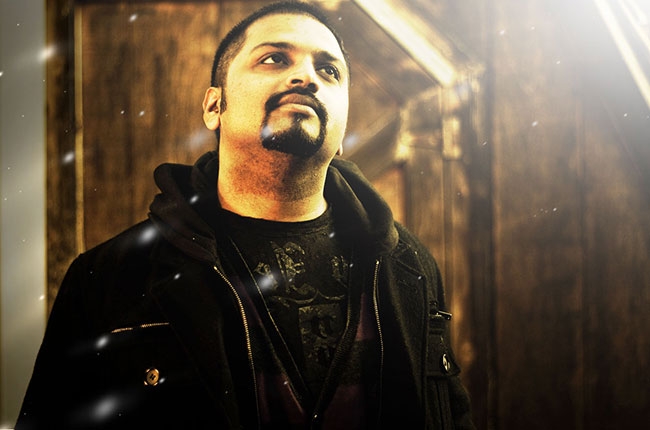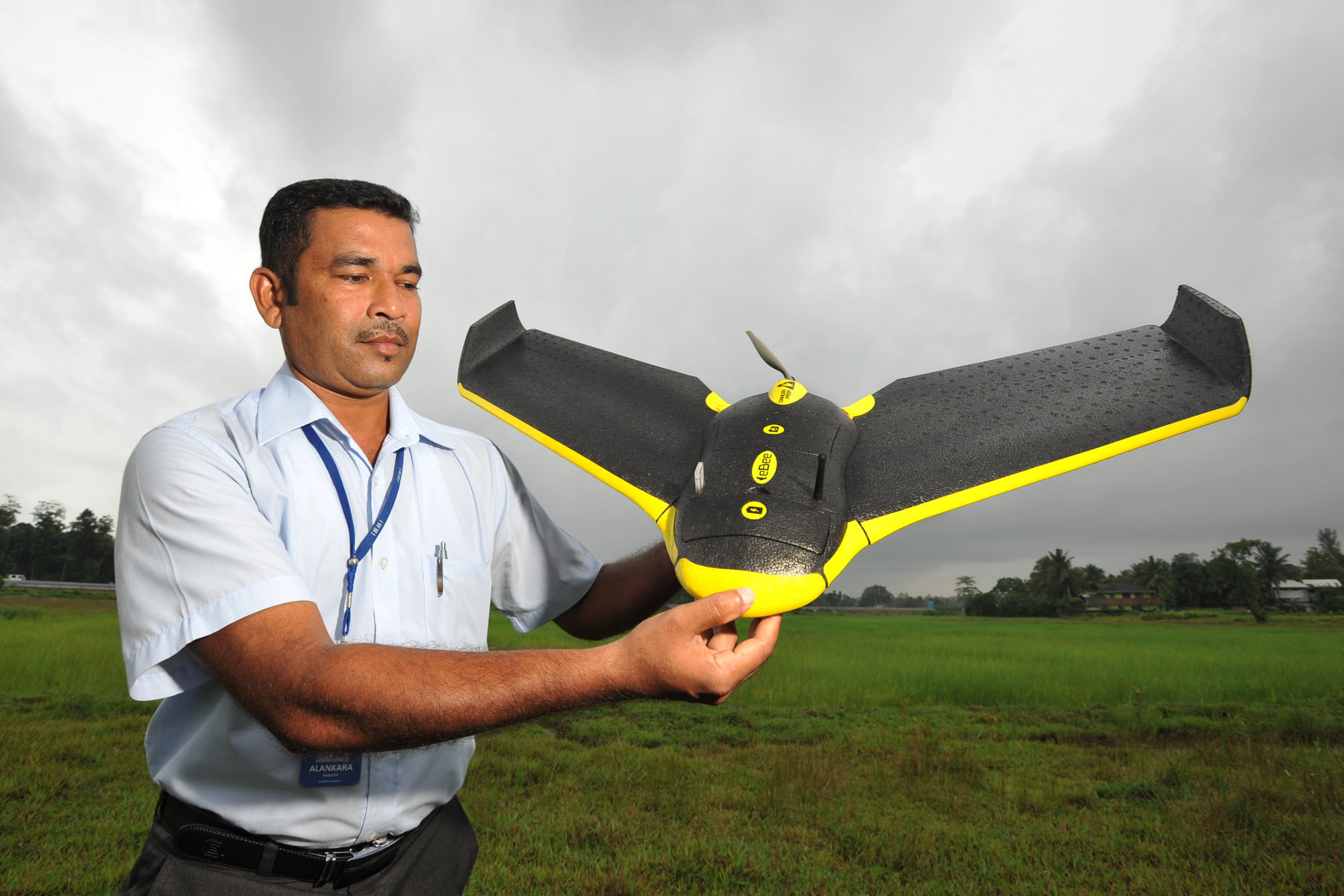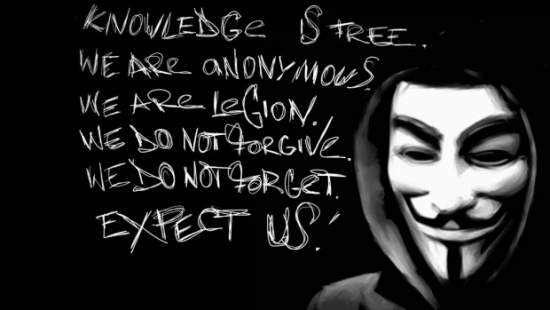
Dealing with the double edged sword of cyber activism.
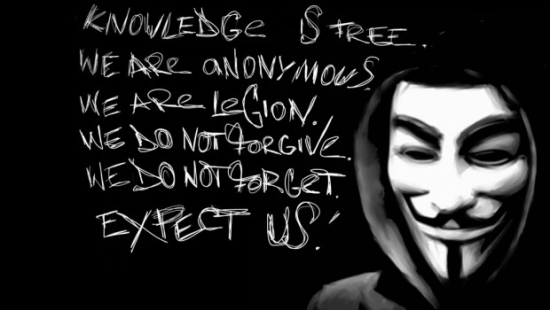
“We are Anonymous, we are legion. We do not forgive, we do not forget. We are coming, expect us” echoes an ominous warning in a digitally altered voice, coming from a man in a Guy Fawkes mask most famous for its appearance in the movie ‘V for Vendetta’.
Though one would not associate this type of menacing message with any kind of activism, this is precisely the reason for which a video, which would ordinarily set the opening of a thriller movie, was made. It still comes as no surprise that as a result of the nature of the foreshadowing, the warning was deemed to be the act of a group of ‘cyber terrorists’ much less activists.
From Hacking to ‘Hacktvism’

Cyber hacking has been around for a while and has proven to be a nuisance more often than not, and rarely ever to serve a constructive purpose. It’s often used to ‘troll’ people and make life difficult for others; hacking has been stigmatized as being an affront to the wellbeing of ordinary persons.
However a group of individuals calling themselves ‘Anonymous’ believe that the end justifies the means. Using hacking to achieve the ends of activism gave birth to ‘hacktivism’; a phrase coined as an amalgam of the words which denote activism through hacking, chiefly revolving around premises relating to freedom of speech and transparency.
The exploits of Anonymous- the rude boys of activism- were many, starting off with random trolls which escalated gradually as they realized the weight of their numbers. Their first target was Hal Turner, a neo Nazi and renowned bigot whose racist radio show was shut down by their overwhelming hacks, and then they moved to the Church of Scientology who faced severe hacks and capitulated in their face off with the group. The gradual escalation continued till they got the attention of the world with the infamous Sony Playstation hack— notably a massive attack in 2011 causing $150 million worth of damages that forced the company to shut down the Playstation network.
The group of hackers had by now announced their arrival in cyber space and commanded that people take them seriously. How seriously? Apparently, very.
They sought out bigger more formidable foes, such as the government of the United States of America, undoubtedly the most tech savvy country in the world and hacked into the most secure databases in the world, such as the NSA and the CIA, and reached their crescendo with the world famous ‘Wiki leaks’. Though not done by Anonymous per se, it was instigated by Julian Assange a hacker affiliated with Anonymous who went by the name of ‘Mandex’.
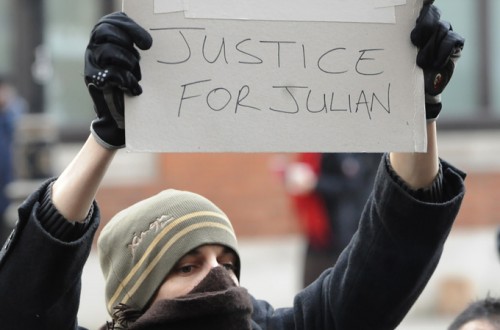
A member of Anonymous protesting the arrest of Julian Assange
Despite the pageantry and the grandiosity of a bunch of kids taking down a government to achieve transparency, and as caught up as we may get with them being heroes of a greater cause, we must appreciate that it comes with a wide range of potential dangers. This kind of power in the wrong hands with the wrong motives could get out of hand and lead to destructive take downs and possibly, anarchy.
How is it relevant to Sri Lanka?

Most of you may wonder what any of this has to do with Sri Lanka which is generally light years behind the Western world when it comes to technology. Your confusion is justified, particularly because we haven’t been exposed to ‘hacking’ that exceeds the odd ‘frape’ when someone forgets to log out of their Facebook page.
Sri Lankans haven’t really reached the global or local limelight where hacking is concerned, for either constructive or destructive purpose. But, it might interest many to know that hacking as a culture has been slowly but surely increasing in the recent past.
Random hacks in prominent places first manifested itself in a public forum (at least to the best of my knowledge) when the Facebook page for the charity group “Run for their Lives” (https://www.facebook.com/runfortheirlives?fref=ts) received a message with a taunting figure saying they were hacked. This to me marked the beginning of the ‘trolling’ phase of hacking which proved to be a precursor to the latter developments of hacktivism in the Western hemisphere.
I should have transformed your confusion to intrigue by now. But even more intriguing is that it did not take as long for it to progress to a purported hacktivism phase as one might have imagined. Recently, it was reported that a group close to 30 people had attempted to hack a government website. Hacking a Sri Lankan government site is a far less considerable feat than hacking Sony, the NSA or CIA and the fact that it was merely ‘attempted’ displays that our hackers have a long way to go before getting to any hacktivism.
Nevertheless, while strides are being made into getting to that phase the next question is whether it is desirable or not.
How do we handle it?
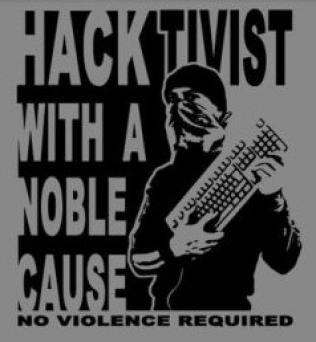
It may seem like I’ve condoned hacking throughout this article, but one must not mistake the tone of mild awe towards a group of David’s facing their Goliath as commending their efforts in total.
Slaying the Herculean must be applauded so long as it is done within the right and responsible framework and to achieve the right ends, but most importantly, that it doesn’t infringe the wellbeing of innocent bystanders. The use of questionable means such as vigilante justice in the cyber world may pose larger threats like people taking the law into their own hands.
So if it is to seep into Sri Lanka, we must all take care to see that any cyber activism stays within ethical constraints. We need to take safeguards to the effect of educating the tech savvy population to exercise any activism with a degree of restraint.
Why is this so important? Because the character of persons attempting anything of this sort plays a large role in the outcomes. The people in the USA and Australia who form the hacktivist group have acted with a surprising degree of maturity and have mostly acted on firmly founded principles for the betterment of society.
Yet there are those groups that do use this authority to destructive ends, and one such group was named Lulsec. They started hacking and censoring some media and made sporadic attacks on the government (I couldn’t help but find it really cool that they sent a message that said “our group of 6 have achieved everything we wanted to, we are done having our fun” to the government itself, but again I do not approve of such recklessness). Conversely a group named ‘Random hacks of kindness’ in Canada does exactly the opposite, they direct all the hacking efforts into helping the oppressed, defending the rights of people who don’t have the means to and restrict their modus operandi to just that.
Thus the propensity of persons to cause harm and indulge in mischief is very material, and who knows more about how mischievous we as a people can be, than us ourselves?
Bearing in mind the Sri Lankan love for stirring trouble and causing a ruckus just because we can, this message goes out to all those who have superior technological knowledge to exercise caution and direct it towards useful means if it should ever get to that stage where hacktivism hits Sri Lanka.



